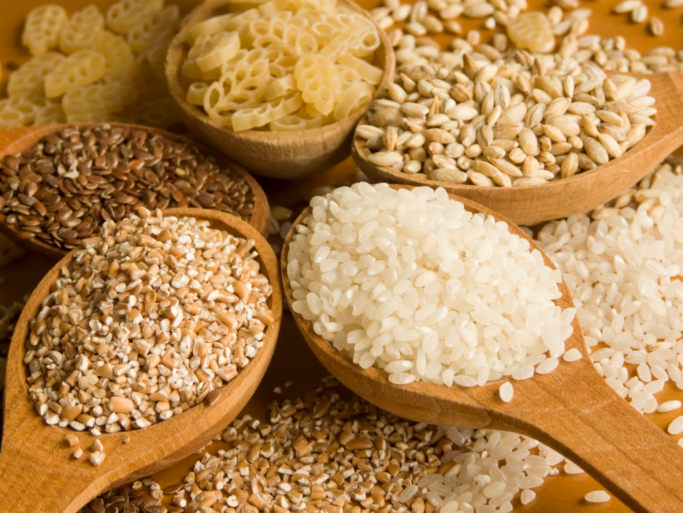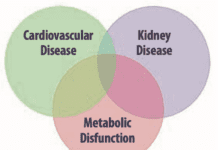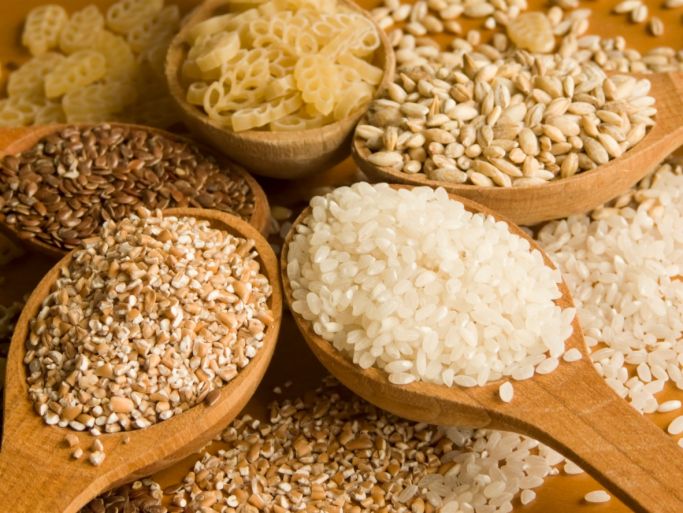Add a possible reduction in the risk of colorectal cancer to the wide-ranging health benefits of whole grains. In a new British meta-analysis, researchers found a significant reduction in colorectal cancer risk associated with consuming more dietary fiber-especially whole grains. People who ate an extra three daily servings of whole grains were 17% less likely to develop colorectal cancer.


Nicola McKeown, PhD, director of the Friedman Schools Nutritional Epidemiology Program, who has extensively researched the health benefits of whole grains, says, Previous observational studies have seen improved health outcomes in people consuming, on average, three or more servings of whole-grains-for instance, reduced cardiovascular disease, obesity and diabetes risk and some cancers.
In what may be the largest analysis ever conducted of fiber consumption and colorectal cancer, Dagfinn Aune, PhD, of Imperial College in London, and colleagues pooled results from 25 prior studies totaling some 2 million participants, with followup periods ranging from 3.5 to 17 years. The findings on whole grains were derived from a subset of those studies including nearly 800,000 participants.
Overall, Aune and colleagues found that a high intake of dietary fiber was associated with a 12% lower risk of colorectal cancer, compared to participants with the lowest intake. For each 10-gram (0.35 ounce) increase in total daily fiber (the equivalent of about five slices of whole-wheat bread), cancer occurrence dropped 10%, with the difference seen primarily in colon cancer incidence.
| What Are Whole Grains? Whole grains or foods made from them contain all the essential parts and naturally occurring nutrients of the entire grain seed. If the grain has been processed (e.g., cracked, crushed, rolled, extruded, and/or cooked), the food product should deliver approximately the same rich balance of nutrients that are found in the original grain seed. |
- The Whole Grains Council lists these examples, when consumed in a form including the bran, germ and endosperm, of generally accepted whole grain foods and flours:
- Amaranth
- Barley
- Buckwheat
- Corn, including whole cornmeal and popcorn
- Millet
- Oats, including oatmeal
- Quinoa
- Rice, both brown rice and colored rice
- Rye
- Sorghum (also called milo)
- Teff
- Triticale
- Wheat, including varieties such as spelt, emmer, farro, einkorn, Kamut, durum and forms such as bulgur, cracked wheat and wheatberries
- Wild rice
But the apparent benefit for other sources of fiber, such as fruits and vegetables, was less dramatic than that associated with whole grains and cereals. Publishing their findings in BMJ, Aune and colleagues noted, Our results provide further support for public health recommendations to increase the intake of dietary fiber in the prevention of colorectal cancer. However, they suggest a particular benefit of increasing cereal fiber and whole grain intake.
Aune adds, Although we did not find an association between fiber from fruit and vegetables and colorectal cancer in this analysis, we have previously shown a protective effect for intake of fruit and vegetables. This may suggest that there are other components in fruit and vegetables than fiber which may explain the protective effect of fruit and vegetables. So people should still eat their fruit and vegetables.
The findings are an example of how the science on such questions continues to evolve. Fiber in bran cereal was first linked to a lower risk of colorectal cancer in people in 1989. Since then, though, researchers have sometimes struggled to prove a cause-and-effect relationship. Given the other health benefits of whole grains, however, theres no reason to wait.
Says Tufts McKeown, Most people are consuming refined grain foods and missing out on the fiber and nutrients concentrated in whole grains. So, increasing consumption of whole-grains into ones daily diet is important. The first step is to replace some of those existing refined grains with whole-grains equivalents-for example, brown rice for white rice, whole-wheat or whole-rye bread for white bread, whole-wheat pasta for regular pasta, and avoid refined grain products high in sugar and fat.
TO LEARN MORE: BMJ, online first, dx.doi.org/10.1136/bmj.d6617. Whole Grains Council, wholegrainscouncil.org. Your Complete Guide to Whole Grains, Tufts Health & Nutrition Letter Special Supplement, February 2011.
























